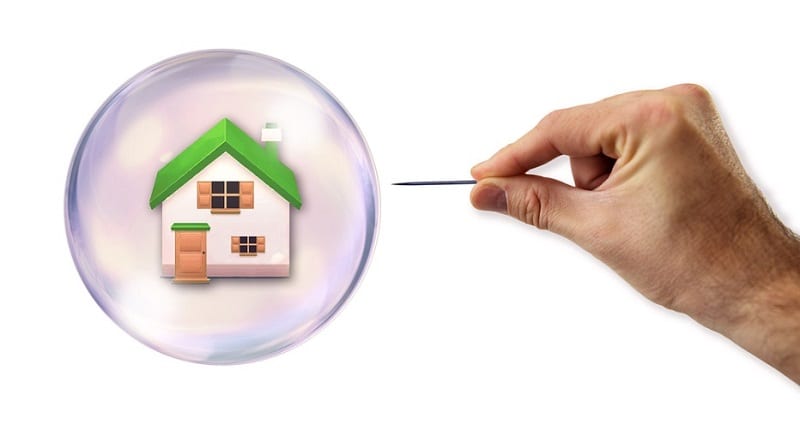Is the Housing Bubble Real?

Housing prices in 2004 again were hot in a number of areas across the country. In three dozen metropolitan areas, home prices appreciated more than 20% in the last 12 months. In 14 major markets, prices more than doubled in the last 60 months. These strong growth markets primarily are in California, Nevada, Florida, New England, and the mid-Atlantic.
Do these numbers indicate a housing bubble?
I have long argued that housing price appreciation does not create the kind of bubble we saw in technology stock prices leading up to 2000. People sell homes less frequently than stocks, making it unlikely that a housing bubble can quickly pop. In addition, homes generally are bought first as a place to live, not primarily for profit. Also, home prices are a local phenomenon. A price level or growth rate can be maintained as long as personal income in the area supports them. My conclusion has been that while a few overheated housing markets require caution, there is no national bubble.
That conclusion still stands, but the number of locations that are looking bubbly and require caution has grown. Let’s look at some data that could indicate trouble.
A key to the health of a housing market is the percentage of purchases by non-occupants. These are purchases by investors and are likely to be made in pursuit of capital gains, not income or as a place to live. Nationally about 8.4% of mortgages were taken out by non-occupants. But in Las Vegas, which appreciated 41.7% in 2004, about 16% of loans were made to non-occupants. In Miami, 11.3% of loans were made to investors, and in Los Angeles 10.4% of loans were made to investors.
Another sign of trouble can be interest-only mortgages. These loans often are used by someone who cannot really afford the house or who is looking to sell at a big gain after a few years. The debtor also is not building equity with each mortgage payment and is more likely to walk away from the mortgage if things do not work out. These loans account for 14.5% of purchases in San Diego, 10.5% in Boca Raton-West Palm Beach, and 13.2% in Las Vegas.
But the key factor always is the ratio of personal income growth to home price growth. Using this standard, a report by economists at Friedman, Billings, and Ramsey found that 27 housing markets are in the bubble stage.
Most of the bubble markets are in California. Others are in Boston; New York; Honolulu; Boulder; Danbury, Conn.; and Bellingham, Wash. But the report is sanguine about prices in Florida, Philadelphia, and the Washington, D.C. area.
Even in bubble areas, the report does not forecast an imminent price decline. The economists believe that an area needs to be in a recession for four consecutive quarters for housing prices to decline. None of those areas is near a recession, and economic growth nationwide is healthy.
Of course, the appreciation rates of the last few years cannot continue in most markets. The rate of appreciation is likely to slow over the next few years. If you purchase a house now, buy it as a consumer item or long-term purchase. Do not buy expecting to reap large returns over the few years.
![]()





